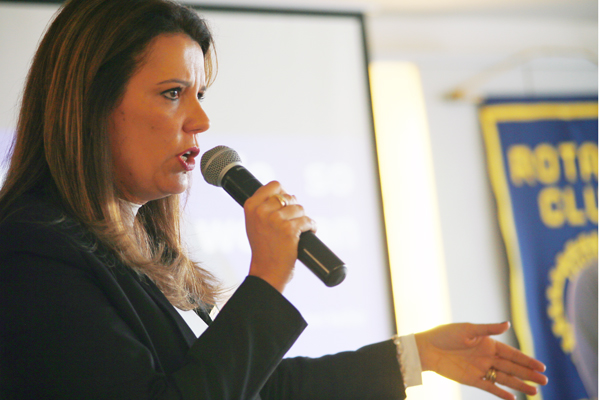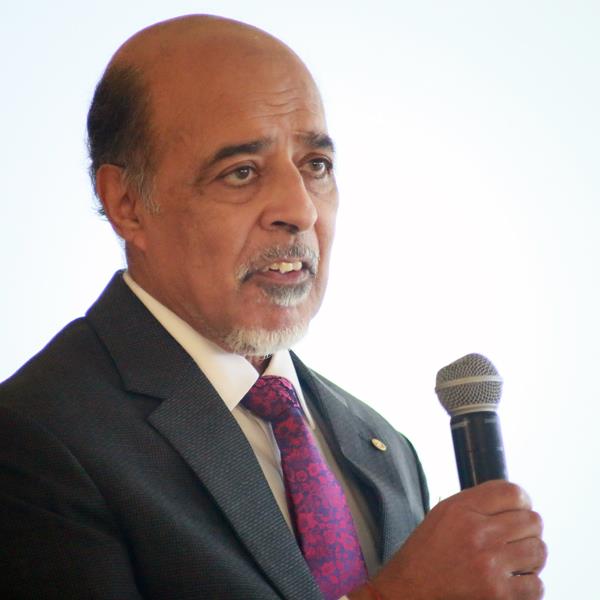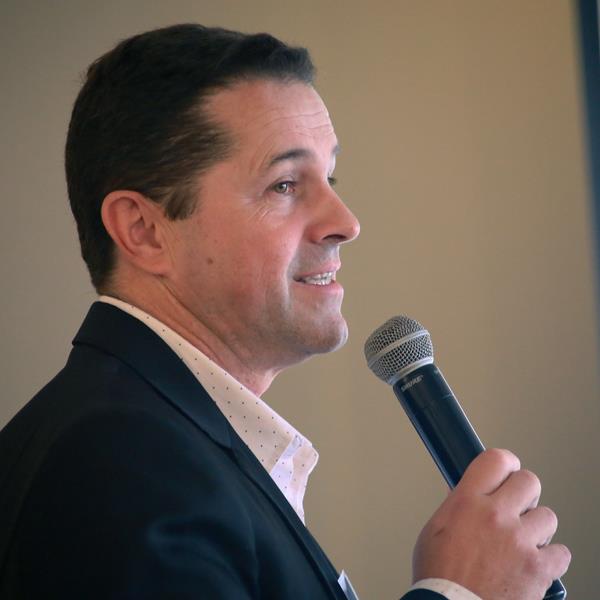Vanessa Cruvinel - Water, Environment, and Health: The impact of the open dump in Brasilia-DF

Introduction by Nilam

Vanessa Cruvinel is a Professor of Epidemiology at the Public Health School of the University of Brasilia (USB). Her professional experience is concentrated in areas of health sciences, with an emphasis in public health, epidemiology as well as environmental and occupational health. She is the co-coordinator of the International Waste Workers committee of Workplace Health Without Borders (WHWB). Currently, Vanessa is a visiting professor at University of Toronto's Dalla Lana School of Public Health, Division of Occupational and Environmental Health.
Vanessa holds a Phd in Health Sciences (area of concentration in epidemiology) from the University of Brasilia.
Assisting with Vanessa's presentation was her husband, and frequent RTE guest, Rogerio.

Until recently, Brazil had the largest open air dump in the world. This waste has a huge environmental impact, and is a serious health risk for the people who comb the trash looking for recyclables to resell. These workers are called waste pickers, or solid waste segregators.
In some developing Countries, waste pickers provide the main form of solid waste collection.
There are estimated to be more 1, 500,000 waste collectors around the world. In Brazil, there are approximately 390,000 workers who are responsible for segregation and the recycling of waste. Brasilia, the capital of Brazil, generates 9,000 tons of solid waste every day and has 1,500 waste pickers.
Vanessa played a YouTube video that helps explain the plight of Brazil’s waste pickers. To view the video, please click here.
In 2017, the Government of Federal District, Brasilia gave its support to a program to diagnose the health and occupational risks of the garbage collectors who work in the biggest open dump of Brazil.
The first step of the study involved interviews, anthropometric measures, and blood, hair and nail samples that provided a detailed analysis of overall health of 1,083 waste pickers. This census helped officials estimate the prevalence of chronic and communicable diseases in addition to identifying the occupational and environmental risks in which the collectors are exposed. This was the first census of waste pickers in the World.
The second step is the monitoring of water quality of underground and surface areas adjacent to the open dump. This water is often consumed by waste collectors who are diagnosed as having water borne diseases and parasites.
The goal of this study is to recognize the risks, and take action to improve the lives of waste pickers.
The Multidisciplinary Program entitled Stop, Think and Dispose from the University of Brasilia-UnB, Brazil has a partnership with Rotary Club of Taguatinga since 2007, and presented some of the results and challenges at the Water, Environment and Health: The impact of the open dump in Brasilia-DF, Brazil in the 8th World Water Forum.
To maintain this effort, it is very important for Rotary Club of Taguatinga to get an international partnership and try to get a global grant in one of these areas:
• Disease Prevention/Treatment
• Water and Sanitation
Rotary Club of Taguatinga has never applied for a Global Grant. So, this opportunity will be very important for their Club history. They have $5,000 rasied, and another $5,000 from the district to invest in a global grant for this project.
Barb explained that while RTE is unable to partner in a Global Grant, we should be able to provide some financial assistance for this project.
.jpg)